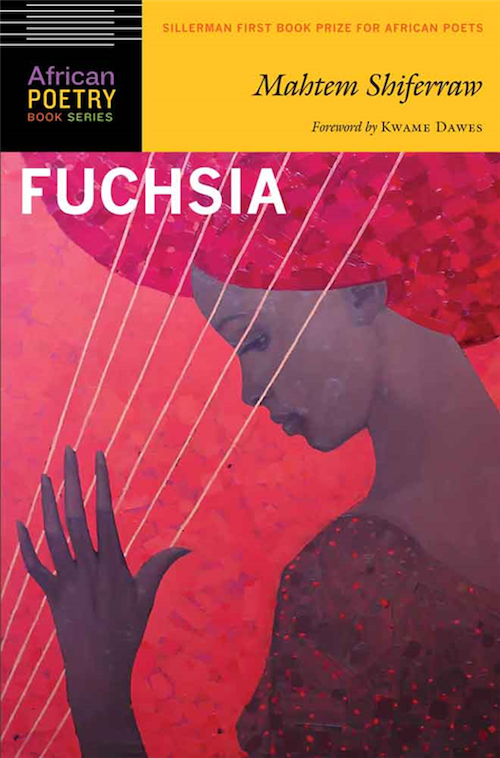'Sometimes Poems Come to Me Not in the Shape of Poetry': Mahtem Shiferraw at Short Story Day Africa

Mahtem Shiferraw's debut collection called Fuschia won the prestigious Sillerman First Book Prize for African Poets in 2015. At Short Story Day Africa Mahtem Shiferraw talks about seeing poems in color, gender identity, and what's on her bedside table.
Ethiopian-American poet Mahtem Shiferraw won the 2015 Sillerman First Book Prize for African Poets for her manuscript, Fuchsia, now published. She spoke to us about her poetry, unique sensory experiences, war and fruit.
It was a pleasure to read Fuchsia, your poetry collection. I was intrigued in the foreword where Kwame Dawes states, "This collection offers multiple versions of blood as color – proposing different shades for the blood of different animals." Which is true, yet it also seems your poems go beyond that, giving colours to fears and undefined spaces. Perhaps you could expound on how and why you've brought so much colour into an art form that is being expressed with black words set upon a white page.
MAHTEM: I think what Kwame did here was point at the specificity of colour used, particularly as it pertains to blood, I think, mostly because it might be unusual to use blood as colour (though it comes natural to me). I have been told I have a different way of understanding the world and my surroundings: synaesthesia, which is a way of experiencing the world and remembering things using multiple sensories at the same time. I discovered this a few years ago, after a lecture, when someone asked me what language I first think/write poems in (because I speak multiple languages). I said, poems come to me in colours, which, until that point, I didn’t even realise! That said – I do not see poetry as black and white, quite the opposite in fact! The black of the ink and the white of the page are only mediums for poems to inhabit this world, a world where we can see them with our naked eye, and feel them, and touch them. But like many art forms, I suspect, poetry is not made to stay on the page. Words always have a way of carving their own spaces; depending on the type of poem, the reader can be transposed into a different space, time, into a different reality, perhaps to a specific moment, or experience, or more. The possibilities are endless. But to answer more directly, I do not necessarily bring colour to poetry, as much as the poetry creates itself in such a way.
Read more at Short Story Day Africa.


